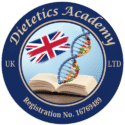Sports Nutrition Diploma
Sports Nutrition
Introduction
- The Importance of Nutrition in Athletic Performance
- The Role of Nutrition in Preventing Sports Injuries
Part One: Fundamentals of Sports Nutrition
Chapter 1 — The Concept and Importance of Sports Nutrition
- Definition of Sports Nutrition
- Differences Between Aerobic and Anaerobic Exercise and Their Impact on Nutrition
- Benefits of Balanced Nutrition for Athletes
- Nutrition and Athletic Performance Enhancement
Chapter 2 — Essential Nutrients for Athletes
- Macronutrients: Carbohydrates, Proteins, Fats
- Micronutrients: Vitamins and Minerals
- Water, Fluids, and Electrolytes
Part Two: Physiology of the Body and Athletic Performance
Chapter 1 — Muscles: Structure and Functions in Athletic Performance
- Muscle fiber types and functional roles
- Muscle contraction and adaptation
Chapter 2 — The Role of the Nervous System in Performance
- Neuromuscular coordination and reaction speed
- Nutrition and neural efficiency
Chapter 3 — Energy Production Mechanisms During Exercise
- ATP-PC, Glycolytic, and Aerobic pathways
- Carbohydrate and fat contributions to energy
- Protein as an energy source in extreme cases
Chapter 4 — Physiological Adaptations to Training and Nutrition
- Hormonal and muscular adaptations over time with training and diet
Part Three: Nutritional Requirements of Athletes
Chapter 1 — Calculating Caloric Needs for Athletes
- Equations for estimating daily energy expenditure
- Adjusting calories by sport type and intensity
Chapter 2 — Protein Requirements for Athletes
- Role of protein in muscle building
- Preferred protein sources
- Protein supplements
Chapter 3 — Nutrition for Vegetarian Athletes
- Challenges of vegetarian diets in sports
- Plant-based sources of protein, carbohydrates, and fats
- Essential supplements for vegetarian athletes
- Sample vegetarian meal plans
Chapter 4 — Carbohydrate and Fat Requirements
- Healthy carbohydrate sources for athletes
- Beneficial fats and their role in performance
Chapter 5 — Genetic Nutrition for Athletes (Nutrigenomics)
- Personalizing intake based on genetic profiles
Chapter 6 — Nutrition for Adolescent and Young Athletes
- Energy, growth, and training loads
Chapter 7 — Gut Microbiome and Performance
- Microbiota, absorption, immunity, and performance
Part Four: Nutrition According to Sport Type
Chapter 1 — Strength & Endurance Sports
- Bodybuilding and related nutrition
- Endurance sports: marathon, cycling, swimming
Chapter 2 — Team Sports
- Football, basketball, volleyball
- Pre-, during-, and post-match strategies
Chapter 3 — Speed & Combat Sports
- Track and field nutrition
- Boxing, judo, taekwondo
Chapter 4 — Analysis of Complex Sports
- Multi-skill and hybrid sports demands
Chapter 5 — Nutrition in Different Environments
- Altitude, cold, humidity: fluids and energy balance
Chapter 6 — Strategies During Travel & International Competitions
- Jet lag, logistics, and food safety
Part Five: Nutrition Before, During, and After Exercise
Chapter 1 — Pre-Exercise Nutrition
- Ideal timing for pre-workout meals
- Best athlete-friendly snacks
Chapter 2 — Nutrition During Exercise
- Fluids and carbohydrate intake during activity
- Supplements for long-duration efforts
Chapter 3 — Post-Exercise Nutrition
- Optimal recovery nutrition
- Protein–carbohydrate window
Chapter 4 — Muscle Recovery: Nutrition & Adjunct Modalities
- Synergy of diet with recovery techniques
Chapter 5 — Sleep, Nutrition, and Neural Recovery
- Sleep’s role in repair and hormonal renewal
Chapter 6 — Chrono-Nutrition
- Timing nutrients and supplements for peak performance
Part Six: Dietary Supplements for Athletes
Chapter 1 — Types and Benefits
- Energy supplements: caffeine, beta-alanine, creatine
- Vitamin and mineral supplements
- Energy drinks
- Classification: performance vs. recovery
- Nitric oxide boosters (blood flow & oxygenation)
- Nootropics (cognitive performance)
- Sleep and neural recovery supplements
Chapter 2 — Criteria for Selecting Sports Supplements
- Safety, certification, and evidence base
- Banned and harmful substances
Chapter 3 — Matching Supplements to Training Types
- Strength, endurance, team, and speed events
Part Seven: Weight Management in Athletes
Chapter 1 — Bulking (Weight Gain)
- Strategies to increase weight and lean mass
- Sample bulking meal plans
Chapter 2 — Cutting (Fat Loss)
- Designing diets for fat reduction
- Maintaining muscle during cutting
Chapter 3 — Professional Plant-Based Nutrition for Athletes
- Building strong muscles on a fully plant-based diet
Part Eight: Nutrition and Sports Injuries
Chapter 1 — Role of Nutrition in Injury Prevention
- Joint, tendon, and bone support
Chapter 2 — Nutrition During Injury Recovery
- Foods and supplements that accelerate healing
- Comprehensive recovery meal plan
Chapter 3 — Muscle Recovery: Nutrition & Alternative Approaches
- Integrated protocols for return-to-play
Chapter 4 — Brain Injuries and Sports Concussions
- Nutritional neuroprotection and recovery
Part Nine: Common Health Issues Among Athletes
Chapter 1 — Gastrointestinal Disorders
- Bloating, constipation, diarrhea during competitions
- Dietary solutions to minimize symptoms
Chapter 2 — Nutrient Deficiencies
- Symptoms and performance impact
- Correction and prevention
Chapter 3 — Oxidative Stress and Antioxidants
- Preventing muscle damage and chronic fatigue
Chapter 4 — Strengthening the Immune System
- Diet and supplements for illness resistance
Part Ten: Healthy Recipes for Athletes
- Healthy breakfast meals
- Main dishes and snacks
- Smoothies and performance beverages
Part Eleven: Practical Applications and Case Studies
- Case studies from various sports
- Analysis and correction of common nutrition mistakes
Part Twelve: Advanced Topics in Sports Nutrition
- Smart Nutrition and AI in performance
- Sustainable nutrition in sports
- Comparative analysis of sports diet systems
- Nutrition for esports athletes
